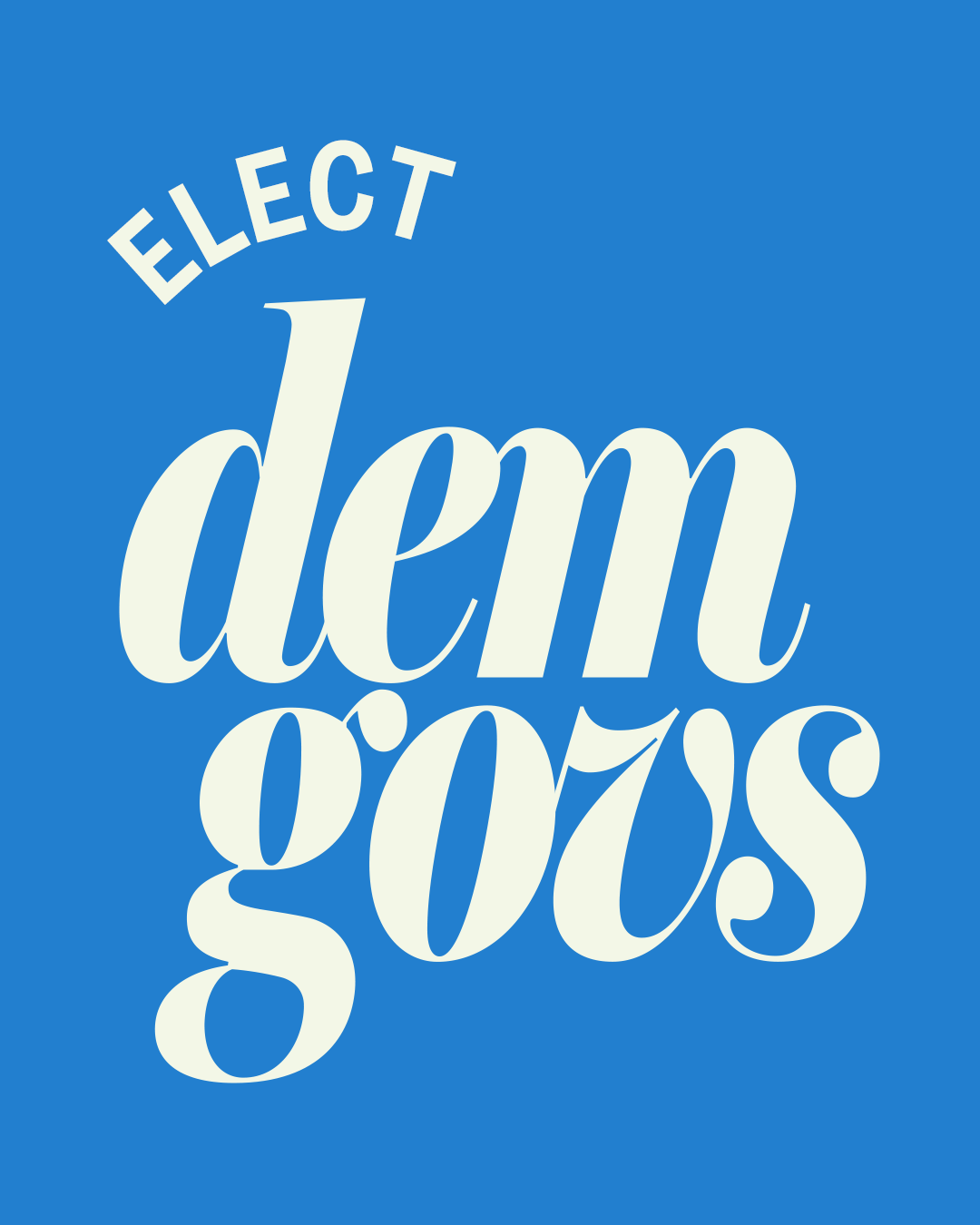
Chip in today to elect Dem govs >>
Democratic governors are leading in the fight against Donald Trump. With our two historic victories in Virginia and New Jersey, grassroots momentum is on our side! But this year, nearly 80% of the country is voting for a governor – and with Republicans already investing to beat Dem govs, early support has never been so critical. Will you donate to elect more Democratic governors who will defend our rights and freedoms and stand up to Trump?
DGA Statement Ahead of the Anniversary of the Jan. 6th Attack on the U.S. Capitol
DGA Statement Ahead of the Anniversary of the Jan. 6th Attack on the U.S. Capitol
Democratic Governors Association Chair Minnesota Gov. Tim Walz released the following statement on the three-year anniversary of the January 6th attack on the U.S. Capitol:
“Today marks three years since one of the darkest moments our country, and our democracy, have ever faced, when armed insurrectionists launched a deadly attack on our nation’s Capitol. While democracy ultimately prevailed, the attack emboldened a movement of election deniers and conspiracy theorists to run for governor, using the Big Lie to advance their extreme agenda and justify their plans to strip away the right to vote.
“Both before and since that painful day, Democratic governors across the country have stood as a crucial firewall against attempts to undermine our democracy. In addition to the vital work of the Biden-Harris Administration, we have taken bold action to expand voting rights, ensure free and fair elections and stand up for our democracy in our states.
“However, this fight is not over. Americans will continue to reject extremism and election denial in governor’s races across the country this year, as we work hard to elect the next class of Democratic governors who will protect our most fundamental rights.”
Here Are Some Key Examples of How Democratic Governors are Standing Up For Democracy and Voting Rights in Their States:
- In Arizona, Gov. Katie Hobbs signed executive orders increasing funding for the state’s election administration, increasing the availability of polling places, and establishing paid civic duty leave for state workers to work as poll workers.
- In California, Gov. Gavin Newsom signed legislation making mail-in voting permanent, expanding electioneering boundaries around polling places, and making it easier for voters to cast their ballots and cure any issues with their ballots.
- In Colorado, Gov. Jared Polis signed legislation making it easier for voters to keep their voter registration updated, informing young voters about voter registration, and making it easier and safer for voters to cast their ballots.
- In Connecticut, Gov. Ned Lamont signed the state’s own Voting Rights Act into law, expanding access and protecting voters from historically disenfranchised communities.
- In Delaware, Gov. John Carney signed legislation expanding vote-by-mail options and enabling Delaware voters to register to vote on Election Day.
- In Hawaii, Gov. Josh Green signed legislation making more information to voters more accessible and bringing the state’s election certification process up to national standards.
- In Illinois, Gov. JB Pritzker signed legislation expanding the state’s mail-in voting options, increasing in-person polling sites and ballot drop off options, as well as strengthening cybersecurity standards for election officials.
- In Kansas, Gov. Laura Kelly protected the state’s mail-in voting process by vetoing an unnecessary bill that would make it harder for those votes to count.
- In Kentucky, Gov. Andy Beshear signed legislation expanding voting access by establishing in-person voting centers and updating the commonwealth’s online absentee ballot portals and early voting procedures.
- In Louisiana, Gov. John Bel Edwards stood up against Republican attempts to purge the state’s voter rolls by vetoing proposed bills that would target almost 200,000 Louisiana voters.
- In Maine, Gov. Janet Mills signed legislation making it easier for citizens to register to vote by allowing online voter registration.
- In Maryland, Gov. Wes Moore signed legislation requiring election administrators to pre-process mail-in ballots and establishing a curing process for mail-in ballots.
- In Massachusetts, Gov. Maura Healey allocated critical resources to streamline vote-by-mail and early voting processes.
- In Michigan, Gov. Gretchen Whitmer signed legislation protecting election workers and officials, streamlining election administration, expanding voter registration options, and bringing the state’s election certification process up to national standards.
- In Minnesota, Gov. Tim Walz signed legislation restoring voting rights to more than 55,000 Minnesotans, and establishing automatic voter registration, allowing 16 and 17 year olds to pre-register to vote, and streamlining mail-in voting.
- In New Jersey, Gov. Phil Murphy signed legislation making it easier for voters to participate in elections, increasing security for the state’s elections, and providing more resources to election administrators.
- In New Mexico, Gov. Michelle Lujan Grisham signed the New Mexico Voting Rights Act into law, restoring voting rights to more than 11,000 New Mexicans, establishing automatic voter registration, and improving mail-in voting options.
- In New York, Gov. Kathy Hochul signed legislation expanding access to the ballot box for more New Yorkers, and making it easier for voters to make their voices heard in local elections.
- In North Carolina, Gov. Roy Cooper fought back against Republican-led efforts to make it harder to vote and easier for potentially curable ballots to be thrown out.
- In Oregon, Gov. Tina Kotek led the way on voting rights legislation by passing automatic voter registration, while also standing up to extremists who threaten to undermine democracy.
- In Pennsylvania, Gov. Josh Shapiro implemented automatic voter registration and worked to deliver improved ballot design to reduce the number of rejected ballots, and ensure more votes count.
- In Rhode Island, Gov. Dan McKee signed the “Let RI Vote Act” that makes voting easier by expanding mail-in voting options and keeping the state’s voter rolls secure by ensuring they are updated between elections.
- In Washington, Gov. Jay Inslee signed legislation expanding the Washington Voting Rights Act, and restoring voting rights to more than 20,000 Washingtonians.
- In Wisconsin, Gov. Tony Evers signed legislation increasing security and transparency of the state’s election administration while also fighting back GOP attempts to meddle in elections and restrict mail-in voting.
###

